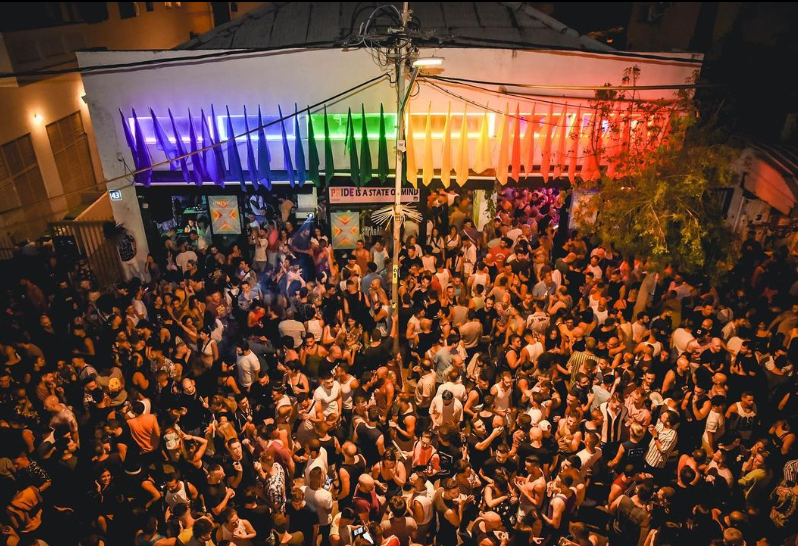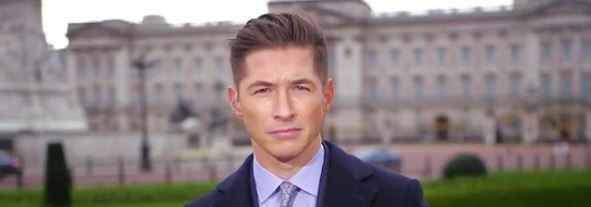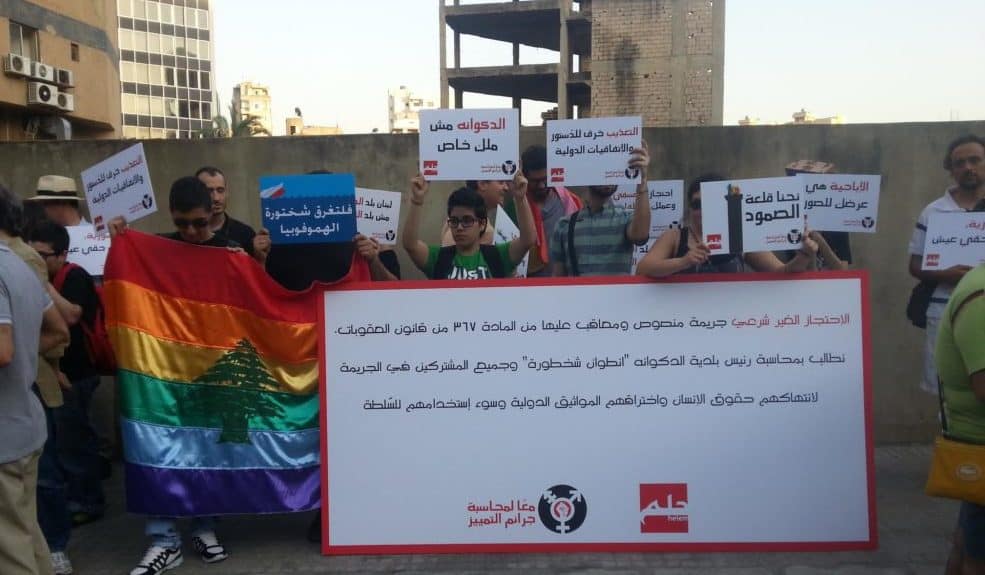
Gay Rights In Lebanon
The struggle for gay rights in Lebanon is ongoing, but considerable progress has been made.
Lebanon is one of the most liberal, cosmopolitan countries in the Middle East. It’s a major hub of fashion and art. Lebanese designers, such as Reem Acra and Elie Saab, have made a mark on Paris Fashion Week. Lebanon was once known as “The Switzerland of the Middle East”. Its capital city, Beirut, was known as “The Paris of the Middle East.” This is, in no small part, due to the legacy of French colonialism.
After the collapse of the Ottoman Empire in 1918, Lebanon was incorporated into the French Empire. It gained its independence in 1943. Signs of the country’s French past can be seen throughout the capital city. You’ll see many Parisian-style cafés with terraces spilling onto the streets. Within these - often smoke-filled cafes - the Lebanese intelligentsia has been at the forefront of Middle Eastern political and cultural debate.
Today, as you wander the streets of Beirut, you’ll find many art galleries, theatres and poetry nights. Stretched along the shores of the Meditteranean, Lebanon is a country where East and West meet, both geographically and culturally.
It’s a fascinating place to explore, but homosexuality is still technically illegal. How, then, can Beirut have such a good gay scene, including the biggest gay club in the Arab world? As Oscar said: the truth is never pure and rarely simple.

Article 534
A hangover from the French colonial period, Article 534 theoretically outlaws homosexuality. The penal code uses vague terminology, prohibiting sexual relations that “contradict the laws of nature”. This allows officials to apply the law without coherent grounds. Arrests are relatively infrequent, but they tend to be used to make an example of prolific LGBT+ individuals. Recent cases include the arrest of Hadi Damien, the organizer of Beirut's first Pride festival in 2018. The event was banned due to threats from Islamist radicals.
A study, conducted in 2013 by PewResearch, reported that 79% of the population did not think homosexuality should be accepted by society. However, Lebanon has the highest percentage of young people who accept homosexuality in the Middle East, after Israel. While it remains a homophobic and transphobic country, the execution of these laws do not wholly define queer experiences in Lebanon. Gay people are slowly becoming more visible.
Indeed, when we interviewed ABC News correspondent James Longman who is openly gay and lived in Beirut, he was very clear that the law in the country does not match the reality.
Gay Bars In Lebanon
Beirut’s gay scene emerged in 1998 with Acid, a now-legendary gay dance club. It closed its doors in 2010 but its legacy continues to influence queer culture. It was a place where gay people, mostly men, were able to make out with each other in a public place in an Arab country.
The longest-running gay bar in Beirut is Bardo, a bar that wouldn’t look out of place in East London or Hell’s Kitchen. Bardo attracts a trendy, youthful crowd. You’ll see well-dressed people drinking and eating hipster food (wasabi-lime beef, halloumi, etc). At night, it becomes more of a party venue.
Posh is the largest gay club in the Arab world. Although it’s geared towards a mixed crowd, most of the patrons are gay. Expect rave, R’n’B and techno. It’s a big venue with a state-of-the-art sound system, a disco ball and scantily clad go-go dancers. It’s the kind of gay club you might see in a major Western city. The only difference is the “no kissing” policy. If you get chatting to a hottie you’ll have to get their number and save it for later (“call me maybe”). The policy is to protect the club from police raids. As a gay venue becomes more high profile, it becomes a potential target. The fact that gay spaces are growing in Beirut shows that things are changing. The “no kissing” policy may well be abolished in the not too distant future.
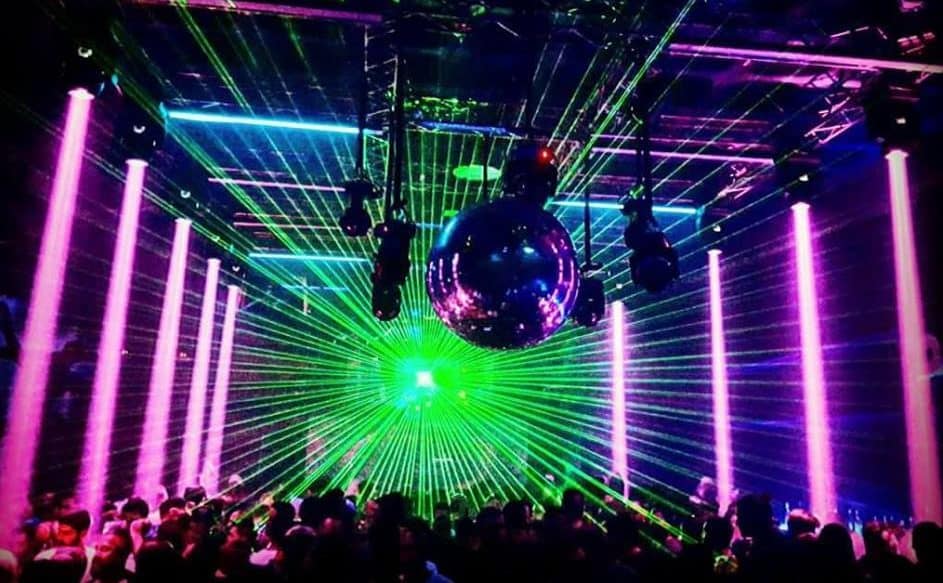
Gay Culture In Lebanon
Lebanese indie band Mashrou' Leila have become major stars over the last decade. They are arguably the most high profile Arab-language band working today. The dreamy lead singer, Hamed Sinno, is openly gay. As Sinno has pointed out, there are many liberals in the region. At Mashrou' Leila gigs in Lebanon, you’ll see gay fans in the audience holding up rainbow flags.
In the distant days of the Ottoman Empire, the West perceived the East to be more decadent and sexually permissive. Sherbert and sodomy were, according to Orientalist literature, the preferred past times of the Sultan. The ladies of the harems were said to be so insatiable that the cooks wouldn’t serve them uncut cucumbers, lest they… you just use your imagination, hun.
Now the East perceives the West to be the home of the permissive society. Things change. The pendulum swings... You’re still thinking about cucumbers, aren’t you?
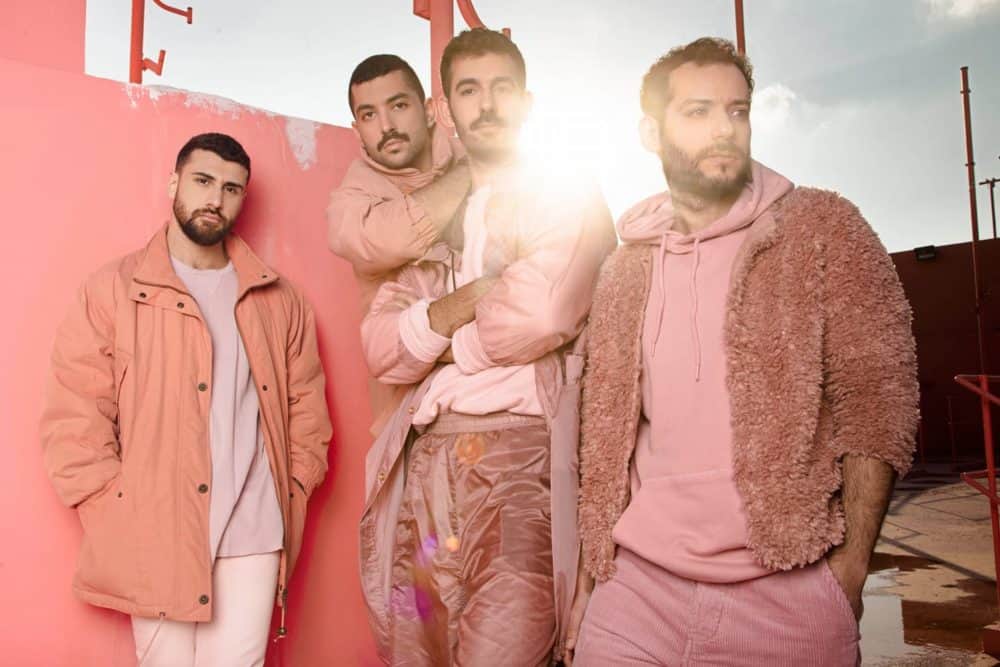
Are Gay Travelers Safe in Lebanon?
The continued implementation of French Colonial laws means that travelling in Lebanon will always come with an element of risk for LGBT+ travelers. Gay men have reported that they have had their phones searched at routine checkpoints, often ending in arrests and beatings for having gay dating apps such as Grindr. Lebanon’s Telecommunications Ministry banned Grindr from several Lebanese data networks.
There are ways around this. Digital tools like Tor allow anonymous internet browsing. WhatsApp has end-to-end encryption on all its messages, and basic digital security such measures as a screen lock are all essential for gay travelers and locals in Lebanon.
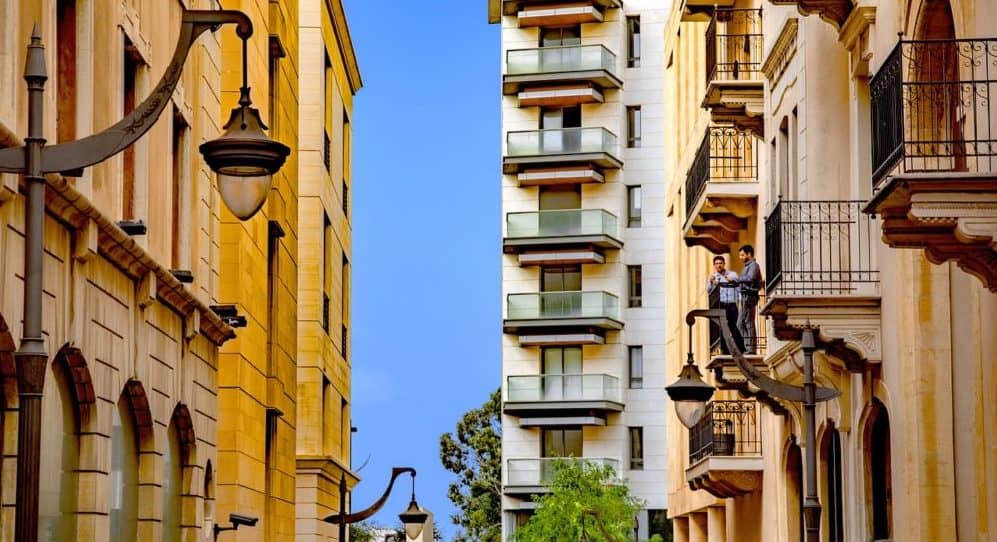
You’ll find a vibrant gay scene in Beirut, but discretion is advised. The “no kissing” policy at Posh reflects the tension gay people in Lebanon experience. Posh is a great gay club and it’s always packed at weekends, but the management keep things under the radar to placate the authorities. Gay culture is there but it's hidden, as it was in the West until recently.
It was Lord Byron who wrote of "marble palaces of sherbet and sodomy" in the Ottoman Empire. Things have changed before and they will change again. But for now, keep it discreet and you’ll be fine.
Join the Travel Gay Newsletter
More Gay Travel News, Interviews and Features
The Best Tours In Beirut
Browse a selection of tours in Beirut from our partners with free cancellation 24 hours before your tour starts.

